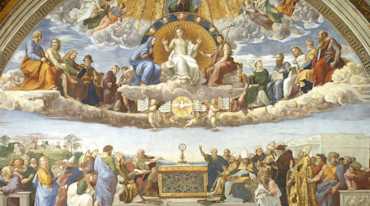
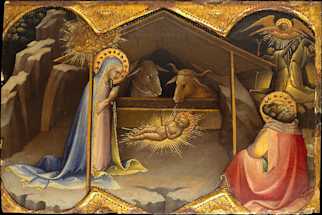
Today’s liturgy is an example of the continuous development of the Roman Rite across the centuries. Although the Mass has ever remained essentially the same, and the Latin rite in its ordinary texts has changed but little since the first millennium, the Church can – and many times has – introduced new Masses, new compositions of new feasts in order to bring into focus more effectively some aspect of our faith. The Feast of the Holy Family is one such example and is of recent vintage.
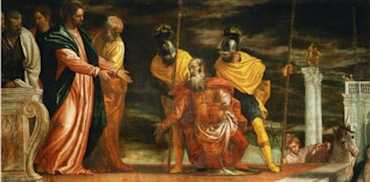
In the Gospel, we encounter the story behind the prayer we say at Mass just before Communion, ‘Domine, non sum dignus.’ The centurion seeks healing for his servant, but believes that the Lord can heal from afar, and that he is not worthy of a visit. Because of the greatness of his faith, Christ heals his servant at a distance.
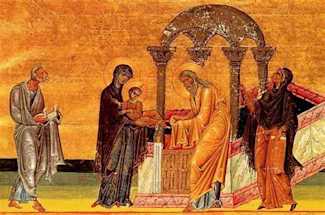
Today we celebrate the mystery of Our Lady’s Purification and Our Lord’s Presentation. It was decreed by the Law of Moses that when a woman had given birth to a son, she was to come to the Temple forty days after the birth to offer sacrifice.

The sermon for the sixth Sunday after Pentecost explores the transformative power of Baptism, as taught by St. Paul. It emphasizes that Baptism creates an inner conformity to Christ's death, burial, and resurrection, making believers a new creation free from sin. The speaker also discusses how this transformation continues throughout life, requiring continuous self-denial and acceptance of one's body, temperament, state in life, and life's circumstances. The sermon encourages gratitude for these trials as they lead to greater sanctification and a deeper union with Christ.
The sermon addresses the prevalence of false prophets and emphasizes the importance of recognizing them by their fruits, as Jesus teaches. Drawing on Galatians 5, it contrasts the fruits of the Spirit with the works of the flesh to help identify genuine spiritual leaders. The speaker underscores the necessity of maintaining unity in the Church, balancing faith and communion without compromising either. Finally, the sermon encourages prayer for church leaders, support for virtuous clergy, and trust in God's providence amidst challenges.
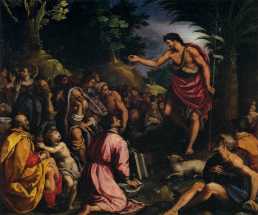
Rorate, caeli, desuper, et nubes pluant justum: “Drop down dew, ye heavens from above, and let the clouds rain the Just One: let the earth be opened and bud forth a Savior.”
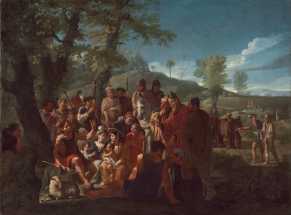
A time of preparation for Christmas and a time of preparation for the return of Our Lord from heaven.
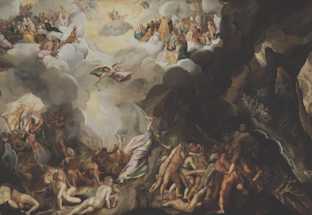
Stir up we beseech Thee, O Lord, Thy power and come – so that by Thy protection we may be rescued from the imminent dangers of our sins and made free by Thy deliverance.

Holy Name of Jesus
At the Name of Jesus every knee shall bow, of those that are in heaven, on earth and under the earth: and let every tongue confess that the Lord Jesus is in the glory of the Father.
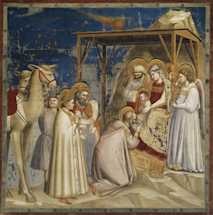
Today we celebrate the feast of Our Lord’s Epiphany, the day on which he manifested himself to the Magi who had followed his star, which they saw in the East.
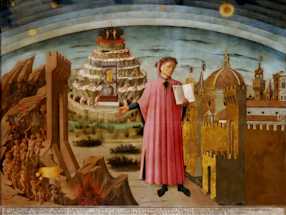
In monastic literature, there is an interesting story related to today’s Gospel, concerning Stephen the hermit
In monastic literature, there is an interesting story related to today’s Gospel, concerning Stephen the hermit. Stephen lived forty years in monastic life, most of it alone, but towards the end of his life, he accepted two young monks, to instruct them in virtue, as well as have someone to help him in his old age.
“Not everyone who saith “Lord, Lord” shall en-ter into the kingdom of heaven; rather he that do-eth the will of my Father, he shall enter into the kingdom of heaven.”
The Lord said to His disciples, “Beware of false prophets who come in sheep’s clothing, but in-wardly are as ravening wolves! It is by their fruit that you shall know them: a good tree bears good fruit; an evil tree bears evil fruit.”
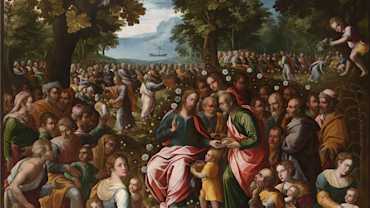
We who are weak creatures find our strength in our dependence on God.
The epistle appointed for this sixth Sunday after Pentecost reminds us, in St. Paul’s characteristic language, that we who have been baptized in Christ have been buried together with Him. This burial refers to the emersion of our bodies into the waters of baptism, a mystical enactment within ourselves of Christ’s own death and burial in the tomb.
St. Peter says that when we have evil done to us, we are to respond in an otherworldly way, ‘not rendering evil for evil, or abuse for abuse, but contrariwise, blessing.’
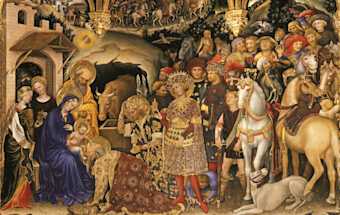
The Gospel for this Sunday is a continuation of last week’s, taken from Matthew, chapter 13.

Dum medium silentium tenerent omnia
In the Mass today we are led to reflect on the marvel of the Incarnation and the grace it signifies. We are given time to realize why these events have taken place and where we may find the moving power behind them all.

Midnight Mass
Tonight by the grace of God we celebrate the human birth from the Blessed Virgin of the One born from all eternity of God the Father. Tonight we come to the crib of the One who comes to us each day with His grace.


